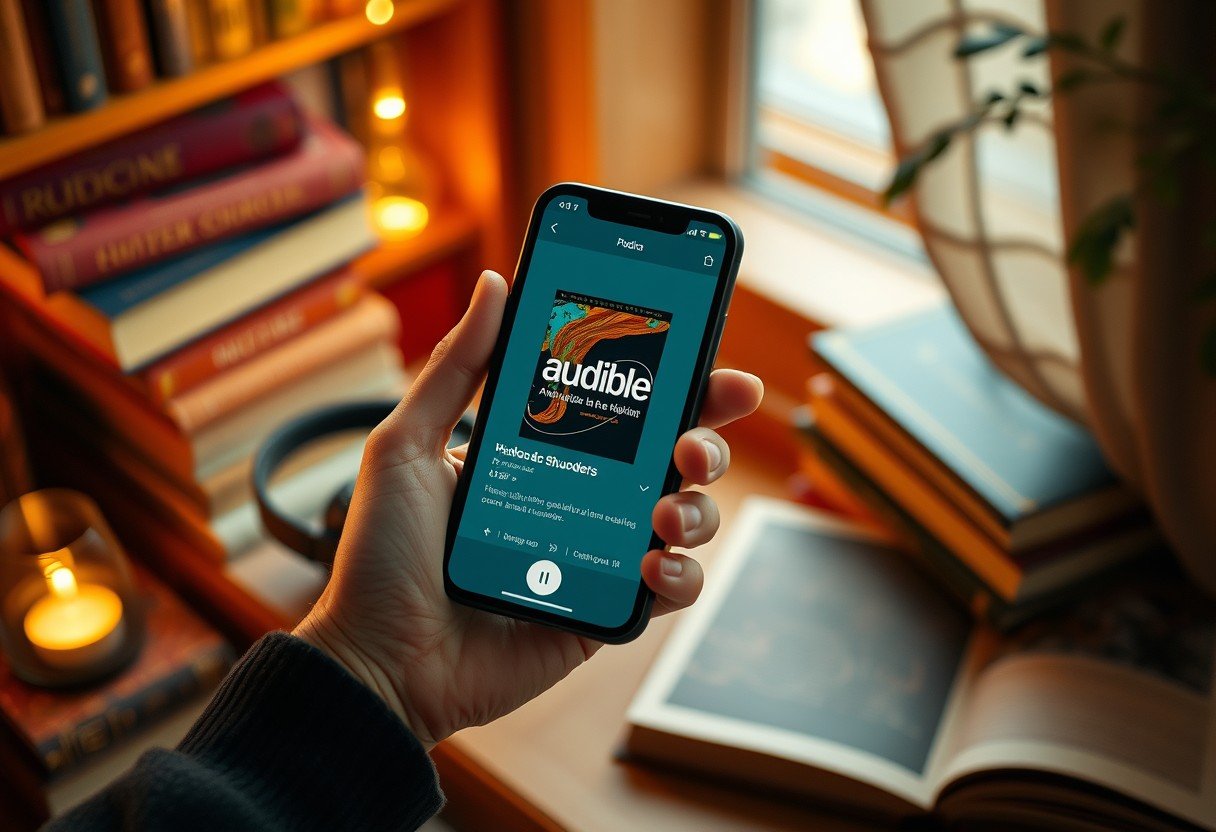Just like any content creator, you may wonder about your audience’s engagement with your podcast on Spotify. Understanding whether Spotify podcasters can access listener data is crucial for shaping your content and marketing strategies. In this blog post, we’ll explore the insights available to you as a podcaster, including demographics, engagement metrics, and privacy considerations. By the end, you’ll have a clearer picture of how much you can learn about your listeners and how to leverage that information for your podcast’s success.
Key Takeaways:
- Anonymous Listening: Podcasters on Spotify cannot see the specific identities of listeners; user data remains anonymous.
- Listener Statistics: Spotify provides aggregated metrics such as total downloads and listener demographics, but without personal identification.
- Engagement Insights: Podcasters can track engagement through listening duration and episode popularity, helping to gauge audience interests.
- Privacy Policies: Spotify’s privacy policies ensure listeners’ data is protected, aligning with broader industry standards for user privacy.
- Listener Feedback: While podcasters can’t see who is listening, they can encourage feedback through surveys or social media to gain insights into their audience.
Understanding Spotify’s Privacy Policies
Before entering into the specifics of how Spotify handles listener data, it’s imperative to familiarize yourself with the platform’s privacy policies. These policies outline the rights and limitations regarding your personal information and how Spotify collects, uses, and shares data. Understanding these aspects can give you a clearer picture of what you can expect regarding privacy while enjoying podcasts on the platform.
Overview of Data Collection
Any time you use Spotify, the platform collects various types of data to enhance your experience. This includes details like your listening habits, device information, location data, and more. Spotify uses this information to recommend content, improve services, and target advertisements, ensuring that the platform meets your preferences effectively.
User Anonymity
Any interactions you have on Spotify are generally anonymized to protect your identity. The platform does not share personal identifiers with podcasters, ensuring your listening habits remain private. This means that while Spotify aggregates data for analytics and advertising purposes, individual user data is not disclosed without consent.
Understanding Spotify’s commitment to user anonymity is crucial for ensuring privacy while listening to podcasts. The platform aggregates data, focusing more on trends and statistics rather than specific user details. This means that, while podcasters can see the overall performance of their content, individual listener identities and personal information remain secure, allowing you to enjoy your favorite shows without concerns about being tracked.
Podcast Analytics on Spotify
Some podcasters may wonder about the insights available through Spotify’s analytics. Spotify provides valuable data that can help you understand your audience better and optimize your content strategy. By taking advantage of these analytics, you can evaluate trends, listener demographics, and overall performance, ultimately improving your podcast’s reach and engagement.
Listener Metrics Available to Podcasters
An array of listener metrics is available for you to explore on Spotify. These include listener counts, streams per episode, and demographic information such as age, gender, and location. Understanding these metrics allows you to tailor your content to better meet the needs and interests of your audience, driving greater engagement and loyalty.
Engagement Insights
Listener engagement plays a crucial role in the success of your podcast. It helps you gauge how your audience interacts with your episodes, such as average listening duration, skips, and completion rates. By analyzing this data, you can identify which episodes resonate more with your audience and adjust your content accordingly.
Analytics related to engagement can offer you a wealth of information regarding listener behavior. For example, if certain episodes see higher completion rates, it suggests your content is captivating enough to hold attention. Conversely, if you notice listeners skipping sections frequently, it may indicate the need for more concise storytelling. Leveraging these insights allows you to not only boost your current episodes but also plan future content that truly engages your audience.
The Impact of Listener Data on Podcasting
Keep in mind that listener data is a powerful tool in the podcasting industry. It helps you understand trends and preferences, allowing you to craft personalized content that resonates with your audience. By analyzing demographic information and listening habits, you can make informed decisions that elevate your podcast’s relevance and reach.
Content Creation and Targeting
Content is key to engaging your audience. Leveraging listener data enables you to tailor your episodes and topics to match what your audience is interested in. This targeted approach not only enhances listener engagement but also increases the likelihood of attracting new subscribers, ultimately growing your podcast’s following.
Monetization Strategies
The way you monetize your podcast can significantly depend on the listener data you gather. Understanding your audience demographics and preferences allows you to identify the most effective advertising partners and sponsorship opportunities. By aligning your content with your audience’s interests, you can create meaningful ads that resonate, leading to higher conversion rates for sponsors.
Another key aspect of monetization is tailoring your content to include affiliate marketing strategies. By analyzing listener data, you can recommend products or services that genuinely align with your audience’s interests and needs. This not only enhances your credibility but also increases the potential for generating revenue through affiliate sales, ultimately leading to a more profitable podcasting venture.
Third-Party Analytics Tools
Once again, while Spotify does not provide detailed listener identities, you can leverage third-party analytics tools to refine your understanding of your audience. These tools offer various insights into podcast performance, including listener demographics, engagement rates, and listening behavior. By integrating these analytics with your Spotify data, you can gain a more comprehensive perspective on your podcast’s reach and resonance with audiences.
Overview of Available Tools
Available options for third-party analytics include platforms such as Podtrac, Chartable, and Podcorn. Each of these tools offers unique features, such as tracking metrics, audience engagement analytics, and optimizing your podcast for better performance. They can help you analyze your podcast’s success in ways that Spotify alone may not provide.
Enhancing Data Insights
One effective way to understand your audience better is to utilize third-party analytics tools to enhance your data insights. By joining forces with these platforms, you can unlock more detailed metrics that can inform your content strategy.
To maximize the benefits of these tools, consider integrating them with your existing data to generate actionable insights. For instance, by analyzing listener demographics and episode engagement, you can tailor your content to suit your audience’s preferences. Furthermore, many of these tools host features enabling comparison with industry benchmarks, giving you a clearer picture of your podcast’s competitive standing. Ultimately, using third-party analytics tools allows you to adopt a proactive approach, helping you attract and retain listeners more effectively.
Limitations of Listener Tracking
Now you may wonder how accurate or reliable Spotify’s listener tracking really is. While podcasters can view certain statistics about their audience, there are limitations on the granularity of this data. For instance, you can see the number of downloads or streams, but not necessarily who those listeners are. This can make it challenging to gain a comprehensive understanding of your audience demographics and preferences.
Privacy Concerns
Tracking listener behavior raises significant privacy concerns. You might feel uneasy knowing that data collection is occurring behind the scenes, even if personal identification isn’t linked to your listening habits. Spotify adheres to privacy policies, but the mere act of monitoring can still make you apprehensive about how your data is handled.
Data Accuracy
To further complicate matters, the accuracy of the data presented to you can also be called into question. Factors such as user error, playback interruptions, and varying data collection methods can influence the statistics you see. This makes it necessary to approach the data with a healthy dose of skepticism.
The accuracy of listener tracking data is often influenced by multiple variables, including the listener device, internet connection, and even the geographical location. These factors can lead to discrepancies in download and streaming counts, making it difficult for you to rely solely on these metrics for making informed decisions about your podcast content and marketing strategies. Understanding these limitations helps you plan more effectively and engage your audience better.

Future of Podcast Listener Insights
Despite the current limitations in listener tracking, the future of podcast listener insights looks promising. As advancements in data analytics and artificial intelligence continue to develop, platforms like Spotify may offer more sophisticated tools for podcasters to understand their audience. This evolution will likely lead to a more personalized experience for you as a listener, while maintaining a balance between valuable insights and privacy considerations.
Trends in Data Usage
On the horizon, you can expect to see emerging trends in how data is used to enhance your podcast experience. With increased reliance on analytics, podcasters will strive to fine-tune their content to better align with your preferences, allowing for more targeted marketing and improved listener engagement. This trend signifies a broader shift towards a more dynamic relationship between creators and their audiences.
Evolving Listener Privacy Standards
To navigate the fine line between gaining valuable insights and respecting your privacy, evolving listener privacy standards are necessary. As regulations tighten around data protection, podcasters must adapt their strategies to build trust with you. This means that future data collection efforts will likely prioritize transparency and user consent, ensuring you feel secure while enjoying your favorite podcasts.
Listener privacy is becoming a cornerstone of podcasting, as both platforms and creators recognize the importance of safeguarding your information. With advancements in data protection regulations, you can expect stricter guidelines that require explicit consent for collecting personal information. This shift not only allows you to feel more comfortable engaging with content but also empowers you to control how your data is used. As these standards evolve, the podcasting landscape will develop in a way that respects your privacy while still providing insightful data for creators to enhance your listening experience.
To wrap up
From above, it’s clear that while Spotify podcasters have access to valuable analytics about their audience, they cannot see the individual identities of their listeners. You can track metrics such as how many people are listening, geographic locations, and even engagement trends, but your personal information remains protected. This balance allows podcasters to improve their content while respecting listener privacy, ensuring a safe and enjoyable experience for everyone involved.
FAQ
Q: Can Spotify Podcasters see the names of their listeners?
A: No, Spotify Podcasters cannot see the individual names or personal information of their listeners. Spotify prioritizes user privacy, so podcasters only receive aggregated data and statistics about their audience, such as the number of listeners, demographics, and engagement metrics without identifying individual users.
Q: What kind of listener data can Spotify Podcasters access?
A: Spotify Podcasters have access to a range of aggregated metrics through Spotify for Podcasters. These metrics may include total plays, episodes played, average listen duration, listener demographics (age, gender, location), and insights into how listeners are engaging with their content, such as skips or completions.
Q: Can podcasters find out if their listeners are subscribed to their podcast?
A: While Spotify Podcasters cannot see specific listener subscriptions, they can track the growth of their audience over time, including new followers and overall increase in stream counts. This information can help podcasters understand trends in their subscribe-and-listen behaviors without identifying individual listeners.
Q: Are there any tools to track a podcast’s success on Spotify?
A: Yes, Spotify offers a dedicated platform called Spotify for Podcasters that provides various analytics tools. Podcasters can monitor key performance indicators, track listener engagement, and analyze the performance of individual episodes to gain insights into their overall podcast success.
Q: Does Spotify share listener data with third parties?
A: No, Spotify does not share personal listener data with third parties. The data provided to podcasters is anonymized and aggregated, ensuring that individual listener identities remain private. Spotify takes user privacy seriously and complies with data protection regulations to maintain this confidentiality.








Leave a Comment